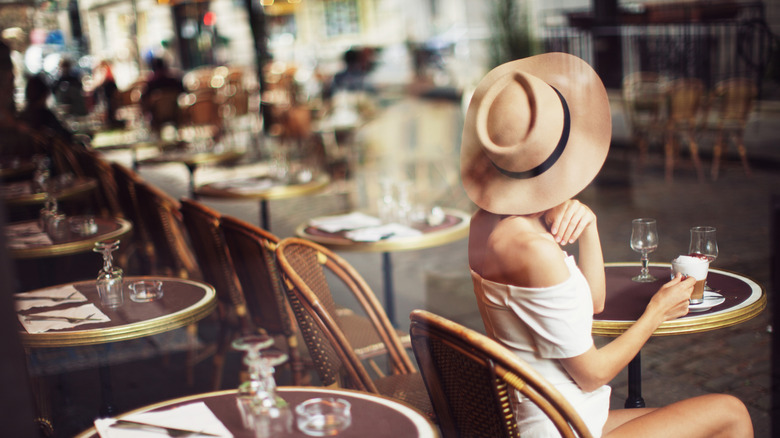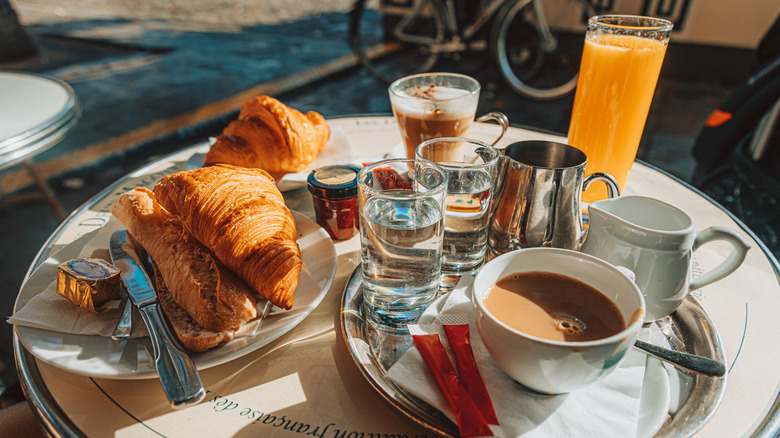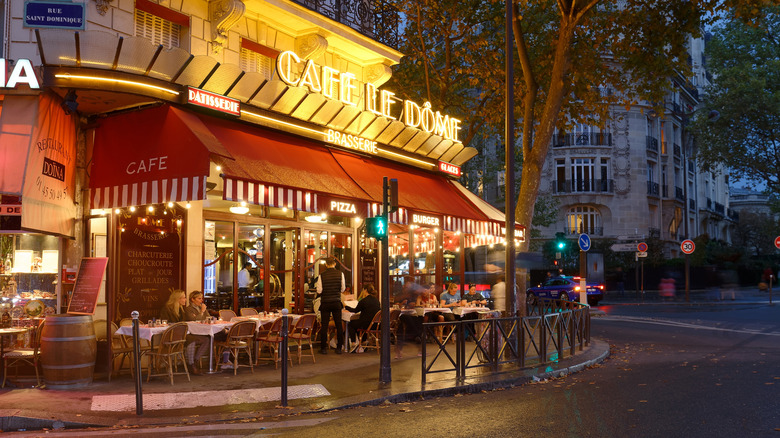French cuisine is world-renowned to the extent that even kids get all the clichés about snobby waiters and highly-strung cooks; Disney’s Pixar even made a movie about it (“Ratatouille”) starring a chipper Parisian rat who dreams of becoming a great chef. Who could blame him? French cuisine is among the best on the planet, and Paris has the highest density of Michelin-starred restaurants outside Kyoto, Japan. But while dining at a fine restaurant may stand at the pinnacle of a French culinary experience, Rick Steves points out (per his website) that cafés have one major advantage over their more formal rivals: They open throughout the day and are perfect for a lighter bite.
France is just one of several European countries where café culture is the beating heart of urban life. Cafés especially tend to thrive in cities where people have a work-life balance that allows them to take time out from their schedule to hang out for a while. In this respect, Paris is perhaps the undisputed king, a metropolis where people enjoy long lunch breaks (up to 2 hours) and a relatively short working week (35 hours). Furthermore, while many foodie visitors may dream of sublime dining in the swankiest French restaurants, it is the cafés where locals linger to discuss the latest topics and engage in the popular spectator sport of people-watching. The good news is that opening hours are far more lenient to accommodate all that nattering and observing.
French cafés are more relaxed with longer opening hours
Dining in France is an amazing experience, but it can be a little daunting if you aren’t familiar with the etiquette, dress codes, and notoriously rude service. While Rick Steves calls it (per his website) a “spa for your taste buds,” he also has plenty of handy tips about what tourists should know about eating in a fancy French restaurant. Then there is also the small matter of opening times. In many French towns and cities, restaurants adhere to very strict hours, usually welcoming guests between 12 p.m. and 2.30 p.m. for the leisurely lunch crowd and closing again until the 7.30 p.m to 9.30 p.m dinner slot.
You don’t need to worry about any of that in a classic French café. They typically open from early in the morning (around 7 a.m.) and serve food throughout the day. Menu options tend towards lighter bites — think croissants, sandwiches, soups, and salads. Overall, the café experience is far more relaxed, and it is a time-honored tradition that patrons will dwell over a coffee for hours on end. If you intend to indulge in this, Steves offers a word of caution: Drinks will often cost more if you are seated at a table rather than just knocking it back at the bar. If you’re working on a tight budget and higher prices might be a concern, it’s a good idea to check the menu before ordering.




